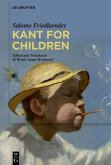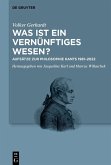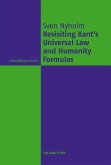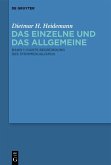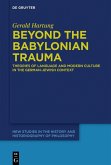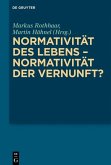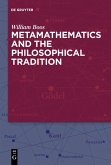Published in 1924, 200 years after Kant's birth, the book sparked interest in some quarters, attracting the attention of the first Newbery Award winner, Hendrik Willem van Loon, who corresponded with Friedlaender in 1933 requesting an English translation. That didn't happen. This is the first English translation of the book. During the National Socialist period, Kant for Children troubled the Nazis. They banned Friedlaender's work. Rebecca Hanf, friend of Ernst Marcus, the philosopher who claimed to have resurrected Kant, recognized that Friedlaender's Kant for Children could counter the Nazi appropriation of Kant and realign Kant with egalitarianism and anti-fascist politics, meaning the book has contemporary relevance in light of an international resurgence of fascism. A lifelong student of Kant's works, Friedlaender deserves a wider audience among Kant scholars and students.
This first English translation includes an introduction to Friedlaender as well as essays by Paul Mendes-Flohr, Sarah Holtman, Robert Louden, Kate Moran, Krista Thomason, and Jens Timmermann.
For translating and editing Kant for Children, Bruce Krajewski received The 2023 Silvers Grant for Work in Progress from the Robert B. Silvers Foundation. The Robert B. Silvers Foundation is a charitable trust established by a bequest of the late Robert B. Silvers, a founding editor of the New York Review of Books, with the aim of supporting writers in the fields of long-form literary and arts criticism, the intellectual essay, political analysis, and social reportage.
Dieser Download kann aus rechtlichen Gründen nur mit Rechnungsadresse in A, B, BG, CY, CZ, D, DK, EW, E, FIN, F, GR, HR, H, IRL, I, LT, L, LR, M, NL, PL, P, R, S, SLO, SK ausgeliefert werden.
"Everyone needs a bit of Dada, and Kant Studies is no exception. This book will place the intriguing figure of Salomo Friedlaender (aka Mynona) crookedly and provocatively in discussions of Kant's writings on education. Friedlaender 'proves' that Kant's moral philosophy can bring about Perpetual Peace and mutual tolerance between all people regardless of race and religion, and that sexuality should be solely for procreation within marriage... Much of his analysis won't do at all; it will stir up debate, even outraged objection, just as one should expect from a quasi-dadaist, and yet there are other aspects of his Kant for Children that are simply compelling and easily adhered to: in this disorienting 'post-truth' age, his earnest commitment to helping the young develop the skill of critical thinking so that they do not find their way in this world, but develop the resources they need to change it for the better, taps into the rebellious potential of Kantian philosophy. Sapere Aude!" - Diane Morgan, School of Fine Art, History of Art & Cultural Studies, University of Leeds, UK.



